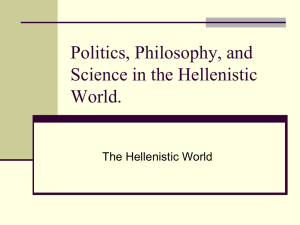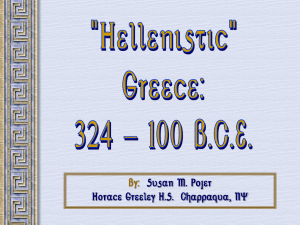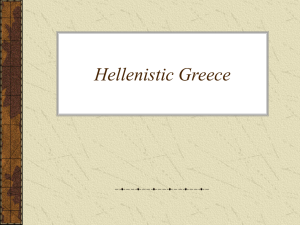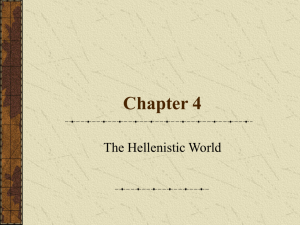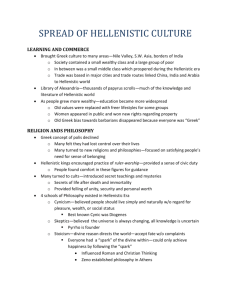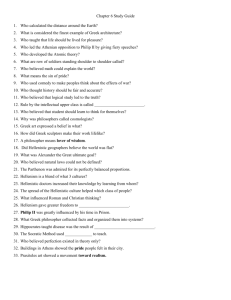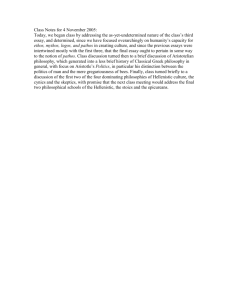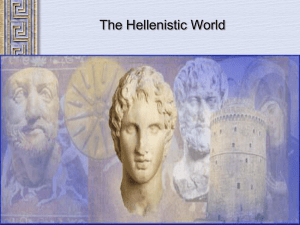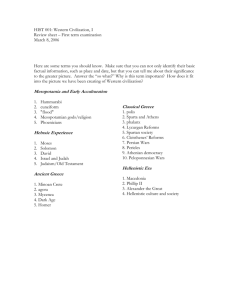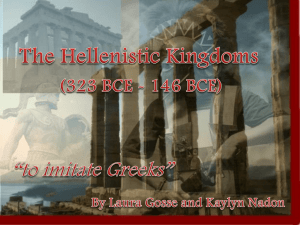Chapter 4
advertisement
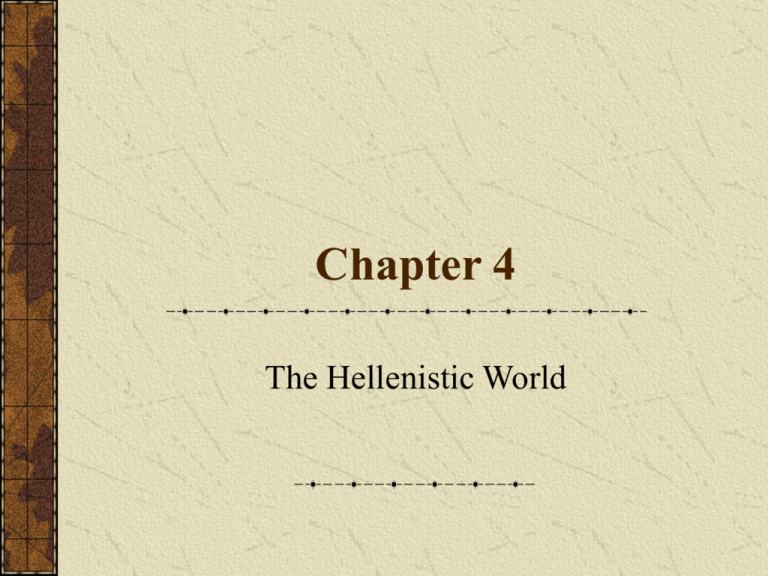
Chapter 4 The Hellenistic World Macedonia and the Conquests of Alexander Macedonia Philip II (359 – 336 B.C.) Athenian Reaction to Philip Battle of Chaeronea (338 B.C.) Corinthian League Alexander the Great (336 – 323 B.C.) The Conquests of Alexander Battle of Granicus River (334 B.C.) Battle of Issus (333 B.C.) Syria, Palestine and Egypt (332 B.C.) Battle of Gaugamela (331 B.C.) Persepolis (330 B.C.) India (327 B.C.) Hydaspes River (326 B.C.) Death of Alexander (323 B.C.) The Legacy of Alexander Military Leader Hellenistic Age Cultural Legacy • Cities • Settlers ©2003 Wadsworth, a division of Thomson Learning, Inc. Thomson Learning™ is a trademark used herein under license. The Conquests of Alexander the Great The World of the Hellenistic Kingdoms Disintegration of the Empire Four Successor Kingdoms Macedonia – Antigonids Syria – Seleucids Pergamum – Attalids Egypt – Ptolemies Celts Common Political System Dominance by Greeks ©2003 Wadsworth, a division of Thomson Learning, Inc. Thomson Learning™ is a trademark used herein under license. The World of the Hellenistic Kingdoms The Great Altar of Zeus – Pergamum Hellenistic Cities Settlement of Greeks Greek Culture Polis Exclusion of Local Population Spread of Hellenistic Culture in Near East Economic and Social Trends in the Hellenistic World Agriculture Shift of Manufacturing Centers to the East Commercial Expansion New Opportunities for Women Upper Class Women Spartan Women Athenian Women Education Queens Culture of the Hellenistic World New Directions in Literature and Art Theocritus (c. 315 – 250 B.C.) Menander (c. 342-291 B.C.) • New Comedy Polybius (c. 203-c. 120 B.C.) • History Architects and Sculptors A Golden Age of Science Astronomy Geometry Euclid (c. 300 B.C.) Archimedes of Syracuse (287-212 B.C.) The Temple to Asclepius – Aegean island of Kos Philosophy: New Schools of Thought Epicurus (341 – 270 B.C.) Doctrine of Pleasure Stoicism Zeno (335 – 263 B.C.) Public Service – Politics Happiness Religion in the Hellenistic World Civic Cults Mystery Cults Cult of Isis The Jews in the Hellenistic World Judaea • Judah Maccabaeus (164 B.C.) Jews outside Judaea Discussion Questions Why was Alexander so successful in building his empire? What do you think Alexander would have done had he lived longer? What impact, if any, did Hellenistic culture have outside of Europe? How did women fare in the Hellenistic world? Why? What were the main goals of Greek philosophy in the third and second century B.C.? How did these goals differ from philosophy during the classical period? What do mystery cults tell us about Greek tolerance toward other cultures? Web Links Ancient Greek Sites on the World Wide Web Internet Ancient History Sourcebook: Greece Cultural Map of Hellas Alexander the Great of Macedon Diotima: Women in the Ancient World The Archimedes Homepage The Internet Encyclopedia of Philosophy: Greek Philosophy
